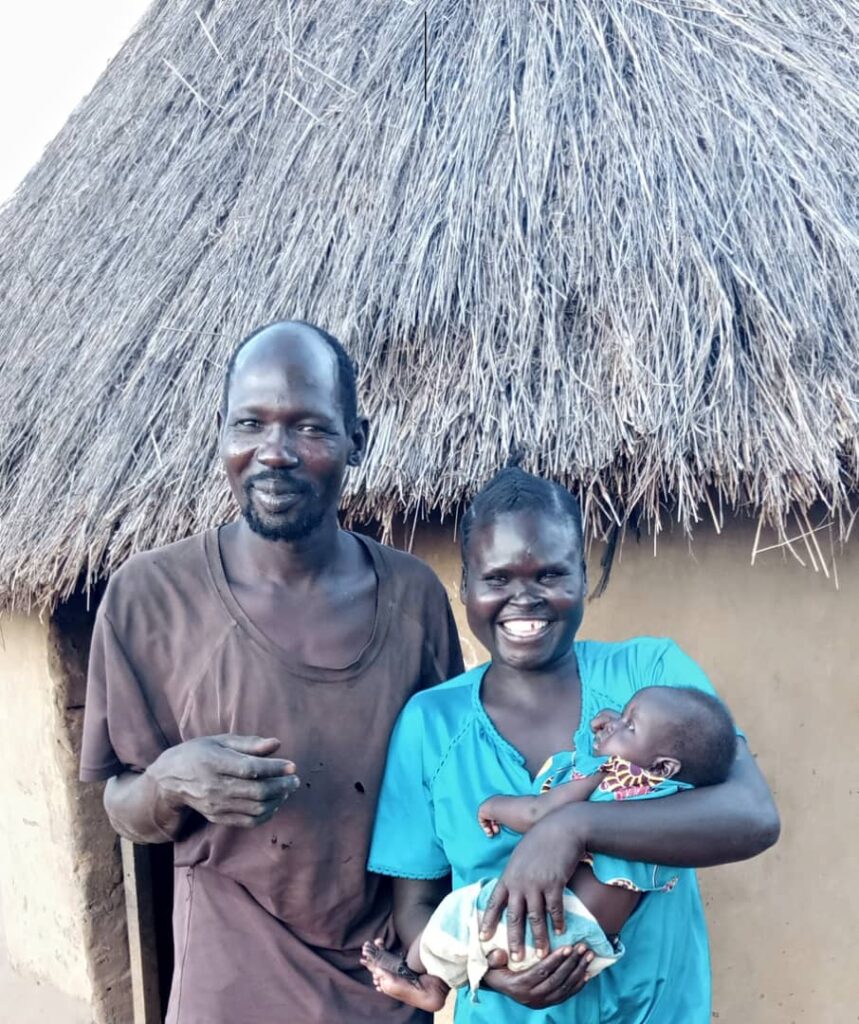A Married Couple Embraces Contraceptives in Magwi, South Sudan
Published on April 22, 2022

Florence Achiro was 15 years old and still in school when she discovered that she was pregnant. Though she wanted to finish school, she had no choice but to drop out because her husband, Odera, made all the decisions in their household. In fact, after getting married, Florence continually found herself pregnant soon after having a baby, whether she felt ready to have another child or not. “My husband didn’t want to hear about family planning,” she said.
Thirteen years later, Florence and Odera are raising their eight children in Bura, a village in Magwi county in South Sudan, near the border of Uganda. After a visit from Akech Jennet, a Boma health worker trained by the MOMENTUM-supported Boma Health Initiative, everything changed for Florence and Odera. Akech counseled them on the importance of voluntary family planning and the different contraception methods available.
USAID MOMENTUM Integrated Health Resilience works with partners like the Boma Health Initiative, a nationwide strategy that aims to improve the delivery of community health services by training capable community members like Akech to become health workers.
Increasing access to community-based contraceptive distribution and family planning counseling in South Sudan is one approach MOMENTUM is taking to strengthen linkages between communities and primary health facilities and improve community ownership and governance of health services.
Changing Beliefs, Knowledge, and Attitudes
South Sudanese women and girls face considerable barriers to accessing and using health services, including early marriage and childbearing, as well as limited freedom to make their own health decisions. The use of family planning is low– only three percent of women use a modern method of contraception.1
At first, after Akech’s visit, Odera found what he learned about family planning difficult to accept. In South Sudan, men typically make health decisions for the family, and large families are the social norm. But two days later, Florence was surprised to hear that he was willing to use a contraceptive method. The next morning, Florence was escorted by the Boma health worker to the Magwi Primary Health Care Center to choose a method.
“I am very happy that my husband accepted a family planning method,” said Florence. “MOMENTUM should continue to support communities like Magwi.”
In addition to improving the health of mothers and children, MOMENTUM is tackling some of the root causes of gender inequality so that women like Florence have better access to voluntary family planning and reproductive health care. We are also helping countries and communities adopt approaches for engaging men like Odera as family planning users and supportive partners.
Reference
- Family Planning 2020. South Sudan: Commitment Maker Since 2016. https://fp2030.org/south-sudan

